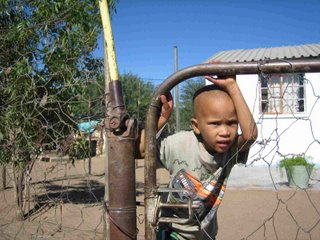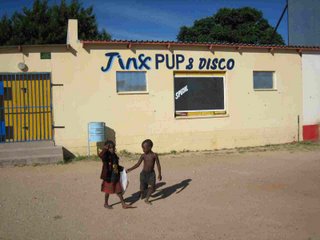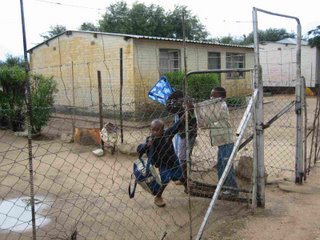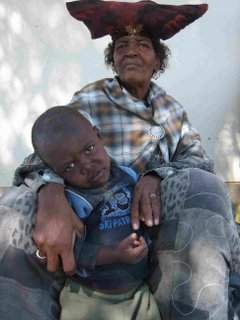soundtrack to my service
a fellow volunteer was somewhat dismayed at Christmas to find a itunes gift certificate amongst his goodies from the states. Probably among the least thoughtful things ever sent to a volunteer at a rural school in africa. That ranks up there with the sand and broken glass that was sent during the “secret angel” gift giving that TK thought of during pre-service training. Well, I am now in talks to purchase said gift certificate, and perhaps the sand and glass too. Seriously, though, I am actually able to get music from itunes, it takes about 1.5 hours per song, and although the connection has this delightful habit of timing out, it just means that I have to reconnect and then itunes downloads the whole song again instead of picking up where it left off. Luckily it can tell that it was purchased but not fully downloaded so you don’t pay twice. This solution will work as long as apple doesn’t find out that I’m actually in Namibia (where itunes isn’t available) and not in Mauritius which is where I am registered.
Since I’ve been here one of the lesser challenges is dealing with stale music. One beneficial outcome is my tendency to set itunes on shuffle these days. Oftentimes I hear stuff I really like, which I’d never listened to back home. Back home the ratio of new music was simply too much for me to give a proper listen to.
“Found” music, my Namibian diamonds among the rough mix:
morcheeba (feat. slick rick)– women lose weight
kings of convenience – I don’t know what I can save you from (royksopp remix)
miri ben-ari (feat. anthony hamilton) – she was just a friend
rick james – mary jane
play-n-skillz (feat. akon) – come home
don omar – ella y yo
As it stands I still have 42.9 days worth of continuous listening to get through my entire library according to itunes.
also, I’ve discovered a entire genre of music that I really enjoy: kizomba. it’s popular in Angola, and each of the lusophone countries has its own national form of kizomba. the songs are heavy on synthesized strings and the songs have a sort of emotional r&b style to them, except sung in Angolan Portuguese. If you know the Craig David song, “Seven Days,” the melody is from an old kizomba song called “Fiona.”
I am moderately into Namibian music. It’s really more of a love/hate thing. Sitting in the back of an overloaded combi ride listening to those kwaito masters, Gazza and Sunny Boy “Best of Both Worlds” cd can get irritating, especially when the drivers’ version has only three tracks on it. I have literally listened to “Serious” by Gal Level for four hours. I actually like that song a lot but only in limited doses. “Kick It” by Gazza and The Dogg is another favorite, as is “Tse, Tse, Tse, Tse” by Matongo family. Last time we were in Swakopmund someone spotted Killa-B (by himself) at the pub and he proceeded to hang out with the volunteers for the rest of the weekend. This explains why people can’t believe that I don’t know Michael Jackson or 50 Cent. Speaking of which, one of the funniest moments from pre-service training was definitely when Linda set up a hat towards the end of training into which volunteers could put in “any question” they still had about Namibia. There were only two questions submitted. The first was a serious one. The second was, “What’s the deal with the Michael Jackson / R. Kelly obsession?” Still don’t know the answer to that one.
If you want to get a feeling for the scene, I think you should be able to download music by DJ Cleo, who is a big producer in South Africa and here. He has a song with Brickz that they show on MTV BASE all the time called “Sweety Ma Baby” that’s pretty good. The rapping is in Zulu, Afrikaans and English.










